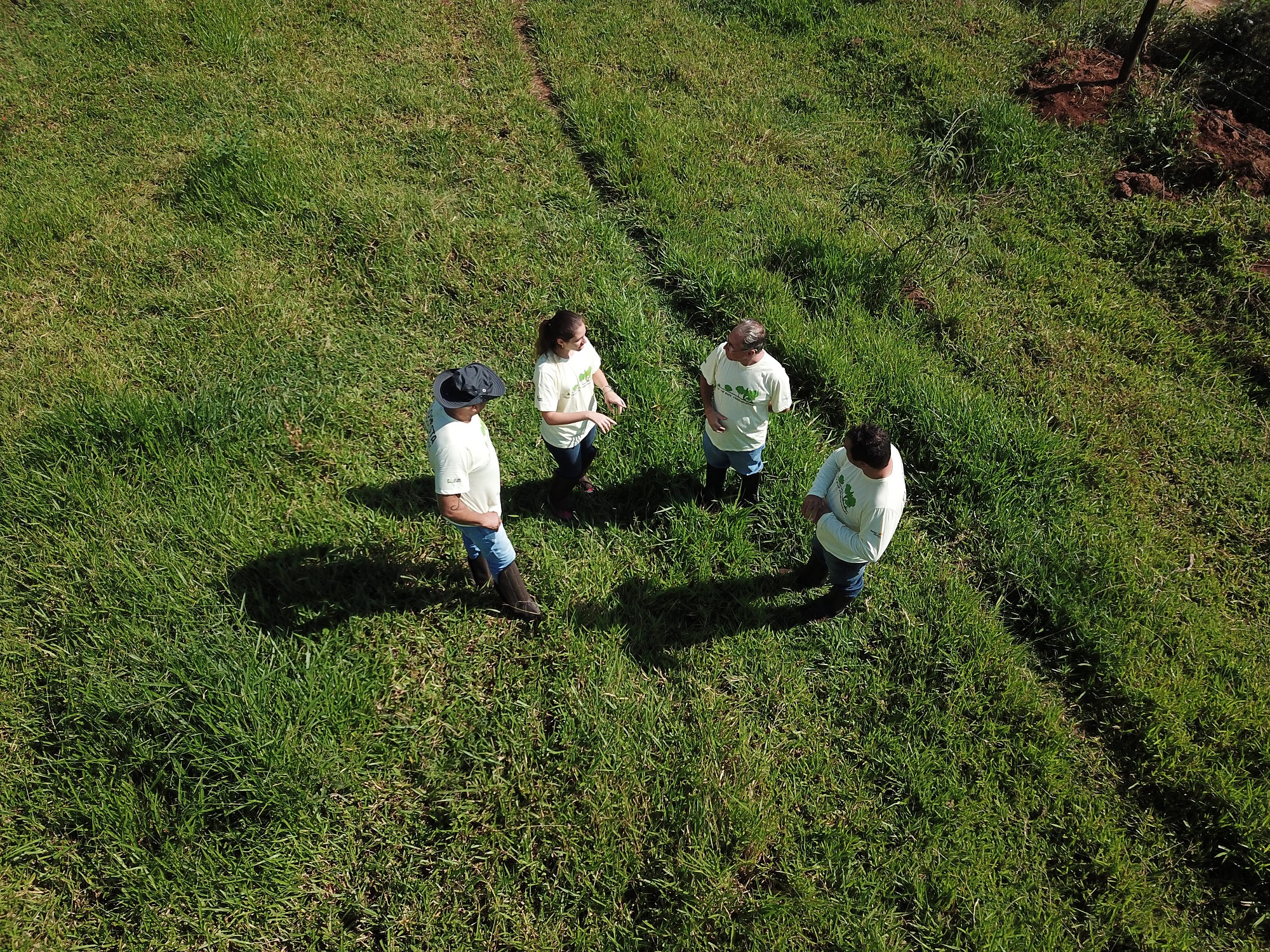Repsol Sinopec focuses on transversal management for its ESG performance

The governance of the organization and the environmental and social management are guiding lines for the sustainability model of Repsol Sinopec Brasil (RSB). Since 2014, RSB has developed annual sustainability plans with the involvement of all areas of the organization. «This is a clear evidence of the incorporation of the ESG principles in our performance», states Mariano Ferrari, CEO of RSB.
This exercise already totals 135 actions that have been consistently guiding the company so as to achieve a more sustainable management, in line with the expectations of society and its stakeholders. In 2020, RSB is giving continuity to topics that require a procedural approach, such as Ethics, People and Safety, without leaving out the challenges posed by the Covid-19 pandemic, the search for innovation in climate changes and research and development projects.
With a comprehensive Code of Ethics and Conduct and a global Ethics Committee, RSB offers a benchmark for associates in the performance of their daily work, reaffirming the company’s integrity and transparency. Communications and training courses are constantly and creatively offered to every associate, such as the «Sempre Alerta» (Always Alert) video series, where characters experience different situations in the office.«Training and awareness are key for the incorporation of the principles of our Code of Ethics among associates and suppliers», claims Carolina Assano, RSB’s Legal Services manager.
Furthermore, we move forward to upgrade international tax risk procedures so as to increase the tax transparency of our upstream operations in Brazil. “We want to be publicly recognized as an honest and transparent company in tax matters. And we have recently been included in the ‘Valor 1000’ ranking of Valor Econômico as the 3rd company in the oil and gas sector, 3rd in the EBITDA margin and 1st in the activity margin, which demonstrates solid financial governance”adds Gilberta Lucchesi, Deputy Financial Director of RSB.
With a multicultural team, consisting of people of 10 nationalities, RSB focuses on promoting an even more diverse environment by accelerating the progression of women’s careers and promoting an environment without any prejudice. Women already represent 42% of the company’s personnel, an above average representativeness in the industry and 50% women in leadership positions, also investing in an even more diverse future through equal participation of men and women in recruitment processes. This year, RSB offered a compulsory course for all leaders about «Unconscious Biases» and joined the «Aliad@s LGBTQIA+» (LGBTQIA+ Allies) initiative, a volunteer group self-managed by Repsol associates globally for the discussion of issues related to gender diversity and sexuality.
In the context of the Covid-19 pandemic, home officing, which had been gradually used as an option to value flexibility and the balance between the professional and private life, was immediately implemented. «Thanks to a collaborative effort between different areas, we were able to offer a quick and effective response for the safe continuity of our work», states Daniele Lemos, People and Organization Manager of RSB.
Alert to the challenges of the current context, Repsol Sinopec has joined the Brazilian Petroleum, Gas and Biofuels Institute (IBP) to support the construction of the Lagoa-Barra Field Hospital, which operated for 4 months and provided care for over 700 patients diagnosed with Covid-19 from the Brazilian Unified Health System (SUS). Furthermore, as a member of the Volunteer Program of the Repsol Foundation, it has promoted four volunteer projects with the participation of its associates in partnership with NGOs Atados, Catadores do Bem, Criola and Centro de Atendimento aos Refugiados, helping over 500 people. «Our sense of responsibility goes beyond housekeeping, also including our neighbors and our community, and this solidary attitude has been even more important», explains Beatriz Giacomini, Communication and External Relations manager of RSB.
In terms of safety, RSB pursues the zero-accident goal (global initiative of Repsol group) demanding a high level of safety in the activities in which it takes part, with special attention to the protection of people and the environment. This year the company puts a new plan into practice to provide training and awareness to suppliers and contractors, in addition to motivating a transforming leadership with the Safety Leap Safety Leadership Program, compulsory to every leader in the company. «Safety is our priority and we have worked hard to foster this culture within and without the company», states Lorena Dominguez, Chief Operating Officer of RSB.
RSB has a notorious history in the care for the environment, supporting forest and sea projects, key to the preservation of the natural heritage, biodiversity protection, water production, climate regulation and local economy. In partnership with the SOS Mata Atlântica Foundation, the company has already launched five public tenders that supported 37 projects for the sake of 21 conservation units in the Brazilian coast, in 1.2 million hectares of protected Atlantic Forest. And through the Florestas do Futuro Project, Repsol Sinopec has supported ten forest restoration projects in the states of Rio de Janeiro and São Paulo, which total 52,848 native trees planted and 21.13 thousand hectares of restored area.
In order to promote Repsol group’s objectives to be a company with zero net emissions by 2050, the first company in the industry to make such commitment, RSB works for the development of the BM-C-33 asset, which has the potential to be one of the main sources of gas in the country.“The opening of the gas market in Brazil is essential for the feasibility of projects that provide safe, efficient and less carbon-intensive energy like gas”, explains Andrés Sannazzaro, Gas Commercialization Manager at RSB.
The collaborative effort in partnership with universities and research centers has been generating innovative results with focus on scanning and artificial intelligence, such as the AIRIS supercomputer, one of the greatest in Brazil, launched in partnership with the SENAI CIMATEC of Salvador. The team of researchers continue to search for new solution for a more efficient and safe performance, including the management of climate change impacts. “Our challenge is to develop technology and find solutions to improve the efficiency of our operations and open new business opportunities, challenging the market’s status quo”, declares Támara García, Research and Development Manager at RSB.
In line with the six priority themes established in the Global Sustainability Plan of Repsol Group – Ethics and Transparency, People, Safe Operation, Environment, Climate Change and Innovation and Technology – and the 2030 Global Agenda of the United Nations (UN), Repsol Sinopec Brasil’s annual sustainability plans are based on a model that interacts with interest groups of the company to incorporate ethical, environmental and social issues in the decision-making process for the creation of a new tomorrow.
ABOUT REPSOL SINOPEC BRASIL
Pioneer in the opening of the market and exploration of the Brazilian pre-salt, Repsol Sinopec Brasil (RSB) is currently the 4th company in production of oil and gas in the country. The company occupies a strategic position in areas of greater potential of the Brazilian pre-salt, with activities in the Santos and Campos Basins. The asset portfolio includes three production fields – Albacora Leste, Sapinhoá and Lapa – and exploration blocks of great potential, such as the BM-C-33.
Member of the Repsol Group, from Spain, the company launched its activities in Brazil in 1997, importing, trading and distributing, directly, base oils and petrochemical products. In 2010, it restructured its asset portfolio, focusing on upstream. In the same year, it was the foreign private company that invested the most in Exploration in the country.
Also in 2010, it increased its capital in partnership with Chinese company Sinopec, thus creating Repsol Sinopec Brasil. The Spanish Repsol holds an equity interest of 60% in the company, and Chinese Sinopec holds the other 40%.
